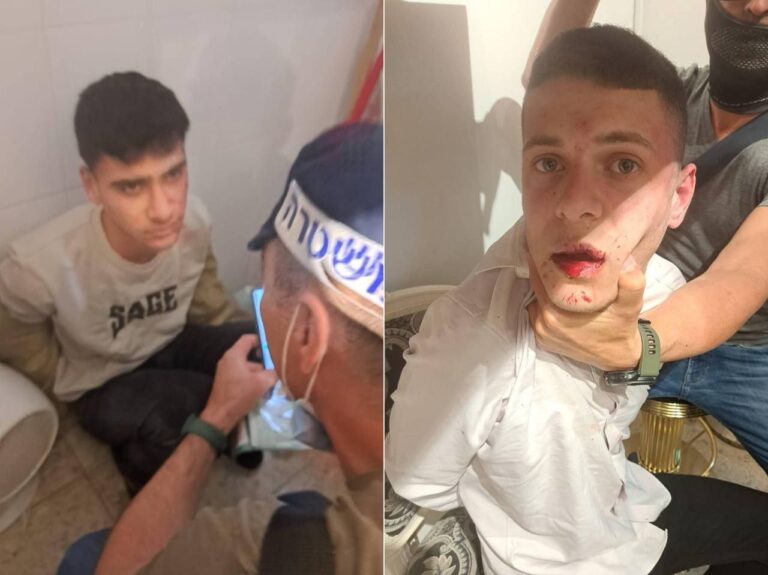 By Rabbi Yair Hoffman for the Five Towns Jewish Times
By Rabbi Yair Hoffman for the Five Towns Jewish Times
The First Principle
Medicine on Shabbos is a somewhat complex area of Halacha. The first rule or principle that one must be aware of is that whenever there is a question or possibility of danger to life – that takes precedence. The Torah tells us “V’Chai Bahem – and you shall live by them. The observance of Shabbos is set aside when it comes to Pikuach Nefesh – saving life. This may be called the First Principle of Refuah on Shabbos.
Any Rabbi that does not teach this First Principle is in violation of spilling blood. While this may seem to be an extreme statement, it is true. People have a tendency to be overly stringent and may not be aware that this tendency could cause people to die, Heaven forbid.
Not only must the principle be taught, but an atmosphere of “V’Chai Bahem” must be cultivated to make sure that everyone gets the medical treatment that they need when an emergency arises. Heart burn could very well be a sign of a heart attack. We should be taught not to push things off when there is any possibility of danger whatsoever.
Not every sick person has a life-threateneing illness. In some cases, there are still Torah prohibitions and in some cases there are still Rabbinic prohibitions that might apply. We must also understand the different categories of prohibitions that are involved in treating the ill and we must also understand the different categories of illness.
When dealing with the ill there are four categories of activities.
A. Communicating with the medical professional (or vice versa).
B. Travelling to the medical professional (or vice versa).
C. Assessing and or testing the ill person
D. Medically treating the ill person.
We must also realize that there are five categories of ill people
1. People who have a possibly life-threatening illness or condition
2. People who are in danger of losing a limb or organ
3. A sick person who is not dangerously ill.
4. A slightly ill person
5. A person who has a pain or slight ache – called Maichush B’Almah
Let’s also consider the different types of prohibitions that exist as well.
1. There are Torah prohibitions Examples of this are writing, drawing blood, turning on an engine, etc.
2. There are a few types of Rabbinic prohibitions as well.
a. One Rabbinic prohibition involves telling a gentile to do a malacha on Shabbos.
b. There is second type of Rabbinic prohibition that the Rabbis made for categories 4 and 5. (A slightly ill person and A person who has a pain or sligt ache – called Maichush B’Almah). This is a general prohibition against taking any form of medicine or engaging in a medicinal activity. The reason for this prohibition is that the Rabbis were concerned that one could come to grind more medicine and violate the Torah prohibition of Tochain – grinding.
c. A third type of Rabbinic prohibition is performing any of the Torah prohibitions in a different manner.
Let’s now discuss the five categories of ill people.
1. People who have a possibly life-threatening illness or condition – This category can be divided into two different situations. It could be a situation where “Time is of the essence” or “Time is not of the essence.” If one is unclear whether time is or is not of the essence, then it must be treated as if “Time is of the essence.” In a time is of the essence Pikuach Nefesh – the action must be done in the quickest way possible. We completely ignore that it is Shabbos and we do what it takes to cure or treat the ill person. It is forbidden to delay the treatment in order to wait for a gentile.
When time is not of the essence, there is a debate between the Ramban and the Rambam as to whether one should minimize Shabbos violation. The Ramban is of the pinion that we should attempt first to find a gentile and if one is not available to minimize the Shabbos violation. The Rambam disagrees with this view and says that since it is a case of Pikuach Nefesh, a Jew may violate it.
The Mishna Brurah rules like the Ramban’s view. However, many contemporary Poskim rule that in dealing with Hatzola, one can and should rule like the Rambam. Although the Gedolei HaPoskim said that each individual Hatzolah Posaik should rule on this issue himself, Rav Dovid Feinstein told this author that there is room for a Posaik to be lenient here. Rav Dovid Cohen concurred.
2. People who are in danger of losing a limb or organ – This category does not include a case where there is a possible danger to human life. If it did it would be part of Category One. For this category, a Jew may violate any Rabbinic prohibition but not a Biblical prohibition. He or she may violate the Torah prohibition ina manner that would render it only Rabbinic – such as with a shinui performing it in a significantly different manner or having two people doing it at the same time together as one. One may request the gentile to violate it as well.
There are some authorities who have written that this category is quite rare because most dangers to a limb involve a danger to the entire body. Other Poskim have suggested that there is a very serious psychological component to loss of a limb or organ, which could influence the halacha as well. At times, the psychological component could cause the patient to ideate suicide, Chalila. Thus one should consult with a competent halachic authority on this category.
3. A sick person who is not dangerously ill. In this category a Jew may only perform a Rabbinic form of the violation and only then with the use of a Shinui. One may ask the gentile to perform any prohibition – even a Torah prohibition. It is also permitted to take pills, syrups, or other medicines.
4. A slightly ill person – if someone is slightly ill, one may only ask a gentile to perform an issur derabanan – a Rabbinic prohibition. The gentile may not be asked to perform a Torah prohibition. A Jew is not permitted to perform any Malacha even a Derbananan and even with a shinui. The sick person may not take any medicine either.
5. A person who has a pain or sligt ache – called Maichush B’Almah. Neither a Jew nor a gentile may perform any act whether it be a Torah prohibition or a Rabbinic prohibition. Nor may this person take any medicine.
Indeed, this person may be worse off than a completely healthy person. How so? If there is an activity that healthy people do not generally do, such as gargling with vinegar, the healthy person may do so. However, someone with a tooth ache may not gargle with the vinegar since it is clear that he is doing so for medicinal purposes.





